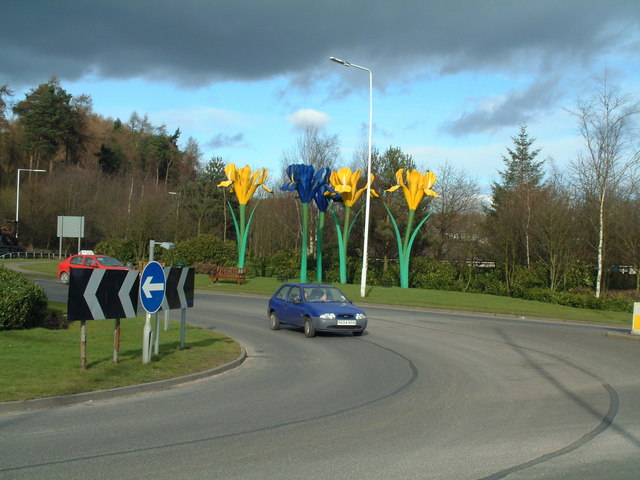As they are up for sale, unless its a new build someone was living there before.
A bit like Glenrothes giant iris ![]()

I don’t mind the eaoliennes at all, its the big pylons I hate. On council once, I went to one of the first wind power parks in 29 to see the effect on the community there, it was very interesting but alarmingly, those things do fall down sometimes as well.
These nesting stands are also a feature of pylons near and around Rochefort (17).
Yep, we also spotted them down southern France and into (and across) Spain when we headed for Portugal a few years ago…
excellent use of an existing “whatever” ![]()
The level of electromagnetic force underneath HT power lines can be higher than is considered healthy (greater than 3-4milliGauss) and some people are very sensitive to it.
Let us not forget that our central nervous systems work using very small electric impulses, so trying to function in very strong electrical fields isn’t a great idea.
If you can’t hear them when its humid then i would buy but you should use it in your negotiations.
I have power lines near my home and bought a meter to test them. At 100 meters they didnt registet, and not even standing directly underneath them. In my kitchen however it easily regestered, the microwave oven was almost off the scale.
We replaced all the microwaves at work after we tested them. My friend worked for Moulinex and said dont every buy one of ours they all leak.
When very close to them on a humid day it was possible to hear them but not remotely close to the house. I suspected the humidity had something to do with it.
Reminds me of our 80’s neighbour, a US airforce officer who worked with microwaves in a communications bunker at a nearby base. He told us to never have a microwave oven nor would he let one in his house, he simply said they were more dangerous than people realise or are told!.
I wouldn’t bother trying to change your mind, but I find most French blandly ‘designed’, new houses to be a far uglier and insidious addition to rural landscapes
Secondly, shortly after buying our last UK house on a cliff overlooking the Solway Firth, work commenced on an offshore windfarm of sixty turbines. I was initially a bit anxious about the change to the view, but they actually became a fascinating and serene addition to the seascape. One reason is that their appearance changes with the light and the prevailing weather, a bit like clouds. Over subsequent years my wife did sixty paintings of this view in a wide range of times of day and weather conditions.
An often unmentioned bonus is that they inadvertently create unofficial marine reserves as fishing boats and environmentally degrading scallop dredgers are unable to operate around them.
I did a lot of research on the visual aesthetics of windfarms in the UK and it was very evident that there were far more positive images of them than negative ones. Furthermore, most anti-windfarm campaigns don’t use un-doctored photographs, but instead usually erroneously and emotively depict a black turbine (no such thing in reality) against a red or orange background.
Lastly a windfarm whether on land or at sea is easily removed, whereas decommissioning a nuclear power station is a lengthy and extremely expensive undertaking, whose costs are not factored in when the project is first mooted.
I LOVED living opposite the Rampion windfarm which is opposite Brighton/ Hove/ Shoreham. As you say it was fascinating watching the progress as they went up, and I loved seeing the red lights flashing at night with the palace pier on one side and the i360 on the other. I’ve been meaning to do another of the boat trips from Brighton marina out to the windfarm as it wasn’t entirely finished last time I went.
Isn’t having some movement in the mid-distance a rather different proposition from a gangling humming pylon at the bottom of your garden?
Isn’t that a tad hyperbolic?
Turbines aren’t usually located at the bottom of peoples’ gardens unless the gardens are extremely large, and if they’re so big one’s unlikely to hear the ‘hum’ in most parts of the property (actually it’s more of a soft ‘whoosh’).
Secondly they’re not ‘gangling’ because that implies awkwardness, whereas turbines are incredibly well engineered, elegant structures that exemplify the Bauhaus diktum of function dictating form.
Lastly, France is rapidly moving from onshore windfarms to deep-water ones, so frankly, I’m a tad surprised by your post…
I thought we were talking about pylons?!
I rather think that this exactly the point that Jane is making.
A turbine is much more beautiful than a pylon.
It’s probable that appreciation of these things vary, but personally I find turbines are more intrusive into a landscape than pylons in distribution and no less ugly in design, plus the movement draws the eye to them in a way that a static pylon cannot. Out to sea, possibly because of the greater distance and flat ‘landscape’ , they seem less unattractive. The one redeeming feature is that they aren’t joined by high-level wires.
It’s an idea I applaud in principle, but revile in practice if not off-shore.
I know that there were certain stretches of major roads in northern France… where OH remarked that the turbines were distracting him … ![]() and he is a very good driver, so this came as a surprise and a concern… they were not sited right alongside the road, but perhaps it was the way the road twisted… that suddenly brought them into one’s vision/peripheral vision…
and he is a very good driver, so this came as a surprise and a concern… they were not sited right alongside the road, but perhaps it was the way the road twisted… that suddenly brought them into one’s vision/peripheral vision…
Not been up that way for several years now, so it might be better… or worse… ![]()
I’m due to drive some of those roads in less than a week. ![]()
